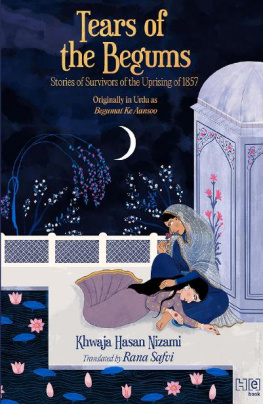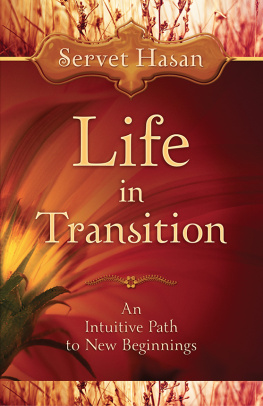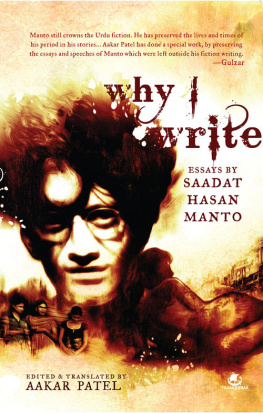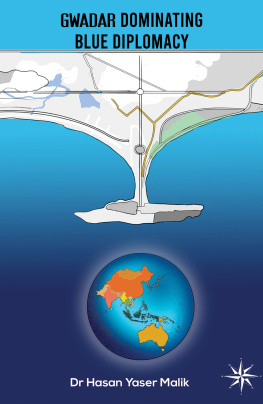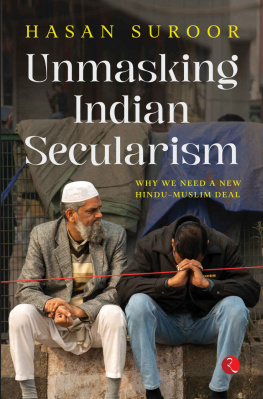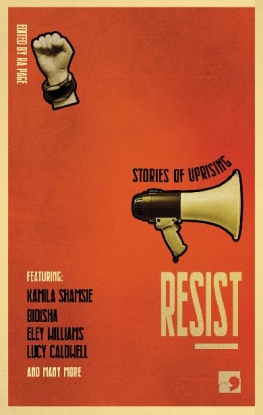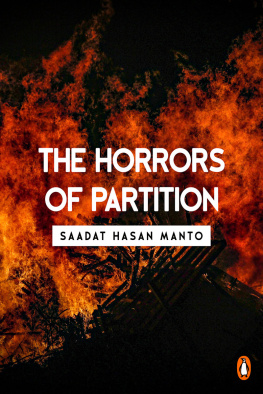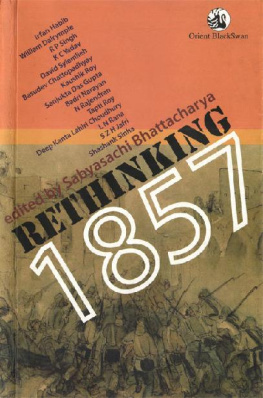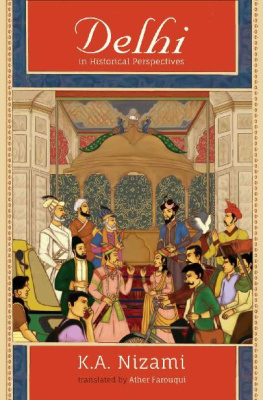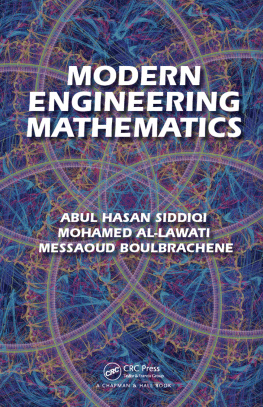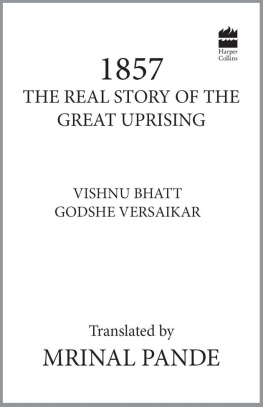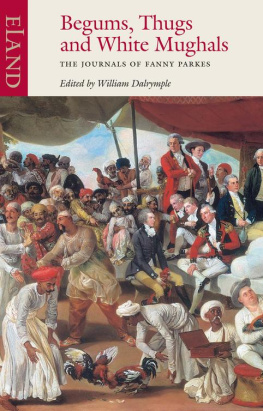First published in 2022 by Hachette India
(Registered name: Hachette Book Publishing India Pvt. Ltd)
An Hachette UK company
www.hachetteindia.com
This ebook published in 2022
English Translation Copyright 2022 Rana Safvi
Khwaja Hasan Nizami and Rana Safvi assert the moral right to be identified respectively
as the author and translator of this work.
All rights reserved. No part of the publication may be copied, reproduced, downloaded, stored in a retrieval system, or transmitted in any form or by any means without the prior written permission of the publisher, nor be otherwise circulated in any form of binding or cover or digital format other than that in which it is published and without a similar condition being imposed on the subsequent purchaser.
Subsequent edition/reprint specifications may be subject to change, including but not limited to cover or inside finishes, paper, text colour and/or colour sections
Paperback edition ISBN 978-93-93701-14-5
Ebook edition ISBN 978-93-93701-15-2
Cover illustration and design by Reya Ahmed
Hachette Book Publishing India Pvt. Ltd
4th/5th Floors, Corporate Centre,
Plot No. 94, Sector 44, Gurgaon 122003, India
Originally typeset in Arno Pro 11/13.2
by InoSoft Systems, Noida
Dedicated to the memory of Khwaja Hasan Nizami for documenting the tales of the survivors of the Siege of Delhi in 1857
The Mughal Empire was established by Babur (r. 152630) who defeated Ibrahim Lodi, the Sultan of Delhi (r. 151726) on the plains of Panipat in 1526. Barring the 15 years that saw Emperor Humayun, Baburs son, defeated by Sher Shah Suri and living in exile till he reclaimed the kingdom, the Mughal dynasty ruled at a stretch till 1857.
The Uprising of 1857, also called the First War of Indian Independence, was a watershed moment in Indian history. In 1857, the last Mughal emperor Bahadur Shah II (r. 183757) popularly known as Bahadur Shah Zafar, the nom de plume under which he composed poetry, was deposed and exiled to Rangoon by the British East India Company, spelling the end of the Mughal Empire. A year later the East India Company was liquidated, and power was transferred to the British Crown by the Government of India Act 1858.
Though much has been written about the Uprising by both British and Indian authors, and it has been the subject of many novels, the fate of the Mughal survivors and its aftermath remained unknown to the public. There were around 3,000 royals living inside the Red Fort at the time of the Uprising. These included the Emperor and his immediate family, and the descendants of the previous emperors known as salatin . The Red Fort and the Salimgarh Fort that adjoined it were densely populated. Immediately after the fall of Delhi, the British secured the walled city of Shahjahanabad and the Red Fort. Harsh and punitive punishments were meted out to the Mughal loyalists and the royal family. In fact, knowing the importance of the Mughal Emperor and the royal family among citizens of the empire, it was only after dealing with them that the British ensured they took action against other rebel centres.
The houses and mansions of the princes and salatin s were demolished once the two forts were captured by British forces on 20 September 1857.
Khwaja Hasan Nizami wrote 12 books on the events that unfolded in 1857, all based on eyewitness accounts of survivors. Of these, the most popular collection of stories was Begumat ke Aansoo which was first published in 1922. It had gone into thirteen reprints by 1946 and was also published in Hindi, Gujarati, Kannada, Bangla and Marathi. However, a complete English translation of the collection has not been attempted so far. Khwaja Hasan Nizami was born in 1879, when many of these survivors were living in and around Delhi. He met them personally and collected their stories. Begumat ke Aansoo is an important document of the events and its catastrophic after-effects on the survivors, the rough and ready and often cruel punishments meted out to the Mughal family often based on false evidence.
The Uprising of 1857 resulted in the wiping out of not only the Mughal Empire but a way of life. The cultural catastrophe has not been fully documented till date. There are references in books such as Ahmed Alis Twilight in Delhi or Mirza Ghalibs Dastanbuy and many Urdu accounts of the nineteenth and twentieth century, but much is left unsaid.
In that respect, these tragic stories, based according to Khwaja Hasan Nizami on true facts and his personal research and hard work, are an important testimony to the time.
There are contradictions in some places, but it is important to bear in mind that some of the interviewees were old and had experienced immense trauma. It is natural that there are a few mistakes in their recall, but that does not take away from their basis in truth. Wherever I have found any contradictions, I have mentioned them in references. In some stories the Khwaja has taken the help of a fictionalized narrative as a vehicle to tell the stories he heard, but they remain rooted in fact.
One must also bear in mind that the Khwaja was living at a time when the British were ruling India; that he was able to collect and publish these stories at all is noteworthy. As per a note in the twelfth edition, the book was banned during the First World War by the British government but Sir Malcolm Hailey, who served as Chief Commissioner of Delhi from 191218 and later as governor of the United Provinces, allowed its publication. Khwaja Hasan Nizami refers to his lifting the ban when he was the Governor so it must have been sometime between 192834.
A descendant of Hazrat Nizamuddin Auliya, Khwajas birth name was Syed Ali Hasan Nizami, but at some point he dropped the first name and started signing as Hasan Nizami. He was given the title Khwaja by the famous philosopher-poet Allama Iqbal for his knowledge and spiritual attainments.
I have referred to three Urdu editions of Begumat ke Aansoo for this translation, as successive editions kept adding new stories and making additions to existing stories. I accessed the twelfth edition which was published by Ibn-e Arabi Karkun Halqa-e Mashaekh, Delhi in 1934 and the thirteenth edition published by Aalimi Press, Delhi in 1944 from the Rekhta Foundation e-books section. The third book is a compilation of all the 12 books written on the ghadar of 1857 by Khwaja Hasan Nizami and published in 2008 by the Khwaja Hasan Sani Nizami as 1857, Shamsul Ulema Khwaja Hasan Nizami ki Barah Qadeem Yaadgar Kitabein. I have followed the table of contents of this new edition after consulting the Pakistani original Majmua Khawaja Hasan Nizami 1857 published in 2007 by Sang-e-Meel Publications on which the Indian edition was based. The only liberty I have taken is to move the chapter A Picture of the Ghadar to the beginning so that the reader can get a clearer idea of the stories that follow, and in a few instances I have changed the titles to give the reader a better idea of the content.
I am extremely grateful to Syed Mohammed Nizami, grandson of Khwaja Hasan Nizami and nephew and executor of the estate of Khwaja Hasan Sani Nizami (son of Khwaja Hasan Nizami) for giving me permission to translate Begumat ke Aansoo .



